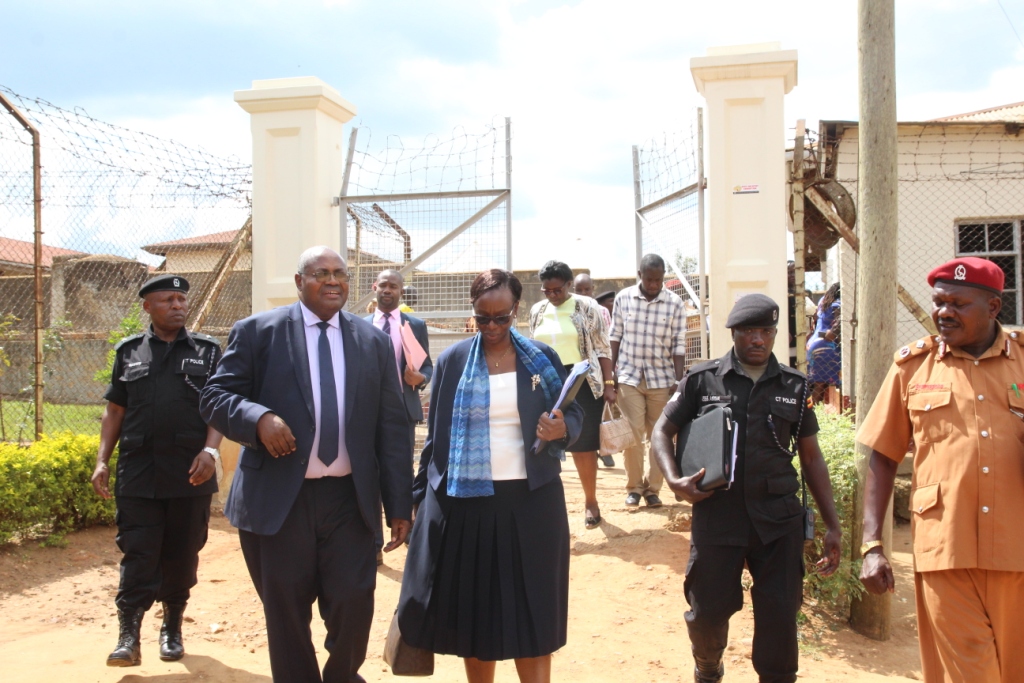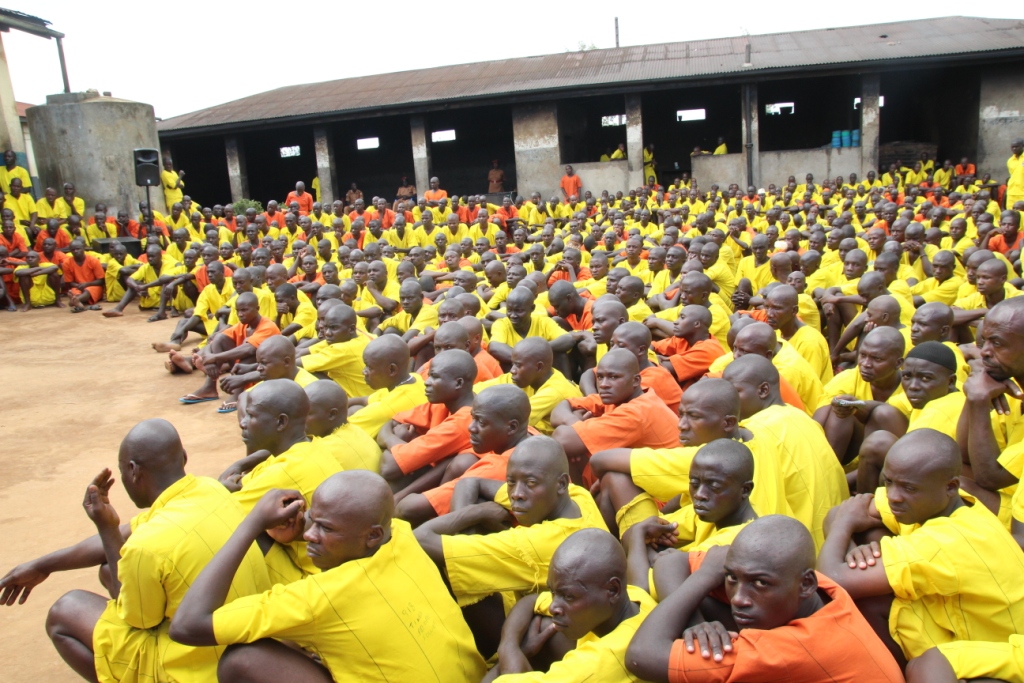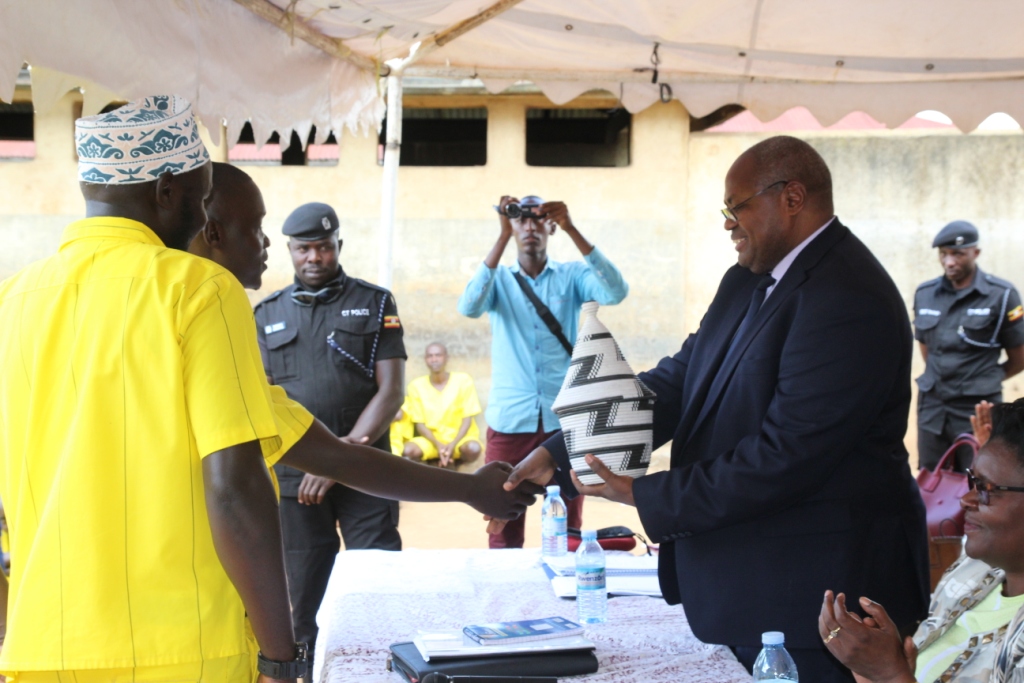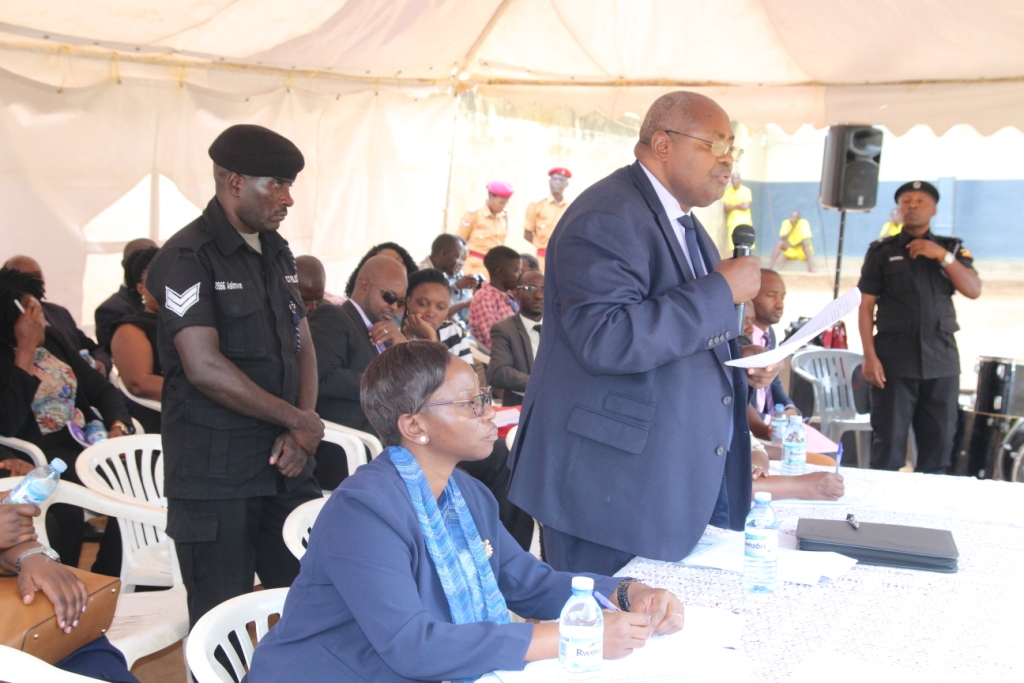Principal Judge, Yorokamu Bamwine has praised the judicial system in Mbarara for adopting pre-bargaining processes in courts of law.
He said this on Monday while visiting Mbarara main and Kakiika government prisons all in Mbarara municipality.
Bamwine launched the pre-bargaining campaign in 2014 to address issues of decongestion in prison facilities and reduction of case backlog in courts.
Plea bargaining is the negotiation of an agreement in a criminal case between the prosecution and the defense whereby the defendant pleads guilty to a lesser offense to one or some of multiple offenses usually in exchange for more lenient sentencing recommendations, a specific sentence, or dismissal of other charges.
Looking at the drastic reduction of inmates in government prisons, Justice Bamwine believes the negotiations will continue to decongest government prisons in Uganda.
“For the first time in the history of this country, we are seeing the conviction remand ratio almost balancing,” the Principal Judge said.
He said that previously, the number of people on remand outweighed that of people who were convicted, but that owing to the uptake in plea bargaining, the two are now balancing.
“We no longer get people complaining about sentence because those sentences are bargained upon by those who are entrusted with authority to punish these offenders. So, i don’t see why anyone would doubt the ideals of a project of this nature”.
Bamwine revealed that three years ago, the total number of people on committal were about 1,500 which has since been lowered to 920. He described this as success.
He however warned innocent inmates against opting for pre-bargaining if they did not commit the crimes.
“For those of you who maintain innocence, plea bargaining should not cross to your minds whether you see that you will delay in prison or not. Don’t think about it as long as you know you never committed the crime,” Bamwine said.
He also challenged Judges who hand wrong judgments to defendants going against what was negotiated on during plea bargaining stages.
“We got some complaint that after parties have negotiated the sentence which is supposed to be proposed to the Judge, he/she looks on and gives a harsh sentence. That’s wrong,” Bamwine said.
He says such a trend poses a negative effect on the negotiation process in future.
“If I am not sure of what sentence I will get, then there is no point for me to participate in negotiations. So, we need a bit of certainty and a bit of flexibility when it comes to accepting or denying the sentences,” he said.
The Officer-in-charge (O.C) for Mbarara main prison, SP Diaville Innocent commended Bamwine for being a far sighted man to introduce a way of reducing congestion in prisons.
Since its (plea bargaining) inception in 2014, 736 inmates have benefited from the program and a total of 250 cases are pending at Mbarara high court, he said. He noted that this has reduced prison congestion.
Mbarara main prison has a total of total 1,732 inmates, 4 debtors, and 928 on remand committals, 13 from court martial and 166 remanded on petty cases.
On their part, the inmates appealed to the judicial system to make the plea bargaining process more regular – either quarterly or monthly, for justice to prevail.
“My Lord, it is our humble request that plea arranging should be put on regular basis either monthly or quarterly so that it can be a continuous process to presume justice,” said Kassim Sennula Byaruhanga, an inmate at Mbarara Main Prison.
South Western Regional Prisons Officer, ACP Frank Byamugisha encouraged courts to look at debtors’ conviction as a last resort.
“Instead of court compelling them to sell whatever they have before they are sent to prison, they first send them to prison. Prison should be the last resort when somebody has totally failed to pay,” said Byamugisha.
He said it is illogical to expect money from someone who is incarcerated and not working. Instead, it will be the government spending on these inmates – on food, water, electricity and other utilities.
The Deputy RDC for Mbarara Emmy Kateera Turyabagyenyi called upon government to create ways of acquitting youthful inmates to go and work towards contributing on the national economy.
“We have over 1,000 inmates in this prison and when you look at them, they are at their productive age. Being in custody means there is no production outside there and the government can only get money when these people are producing,” Kateera said.
“If these people are few. We would expect the economy to grow then government would fund the Judiciary” explained Kateera.
The principle judge will on Tuesday be in Nyamushekyera government prison Bushenyi, a detention facility serving districts of Bushenyi, Mitooma, Rubirizi, Sheema and Buhweju.











